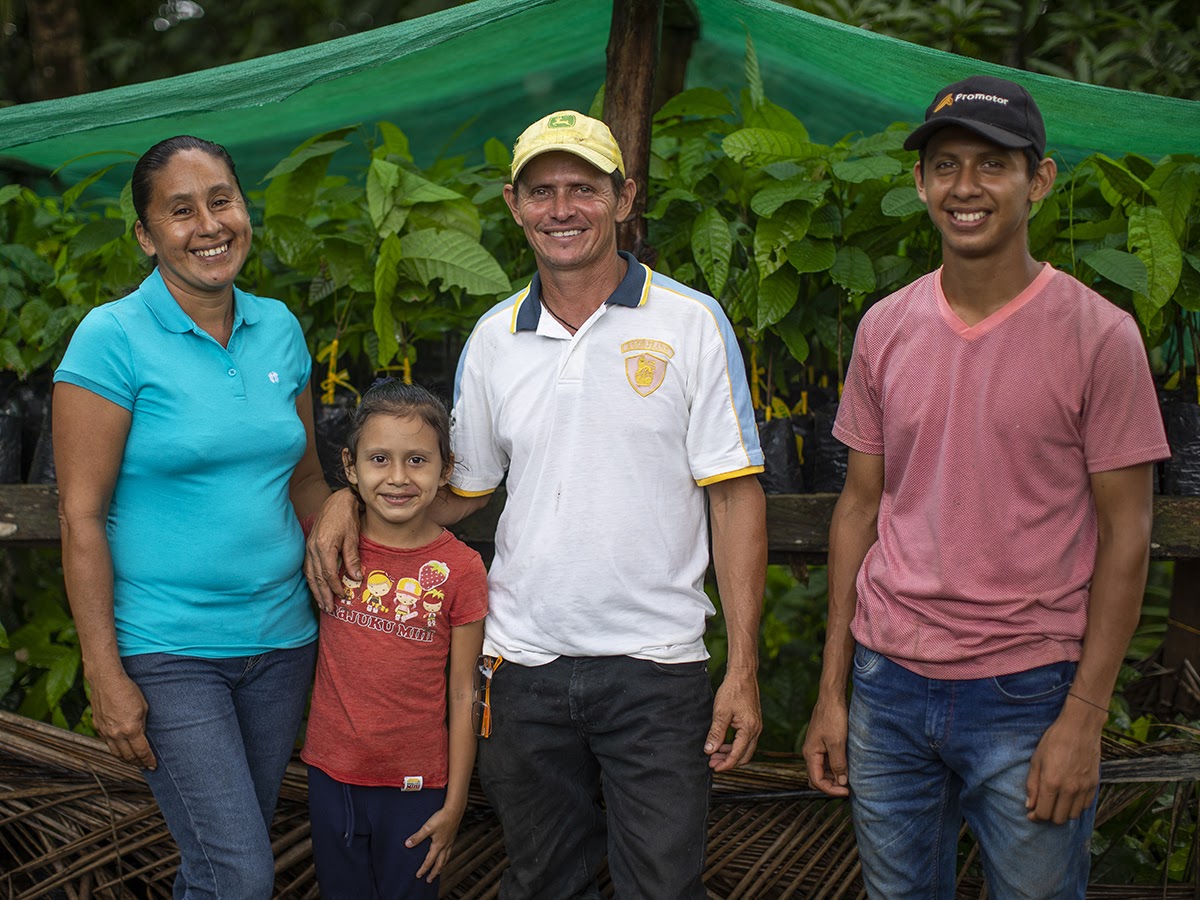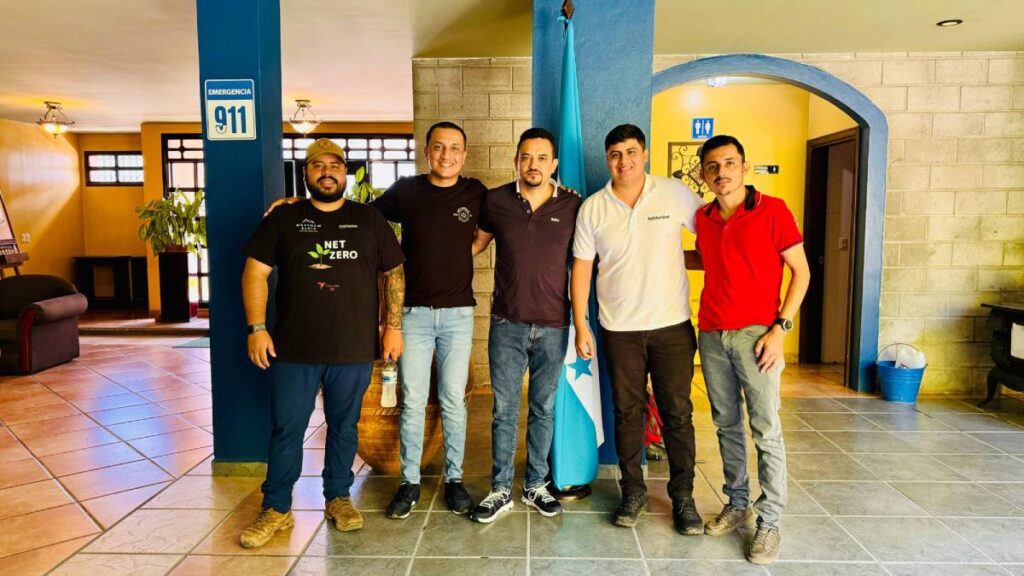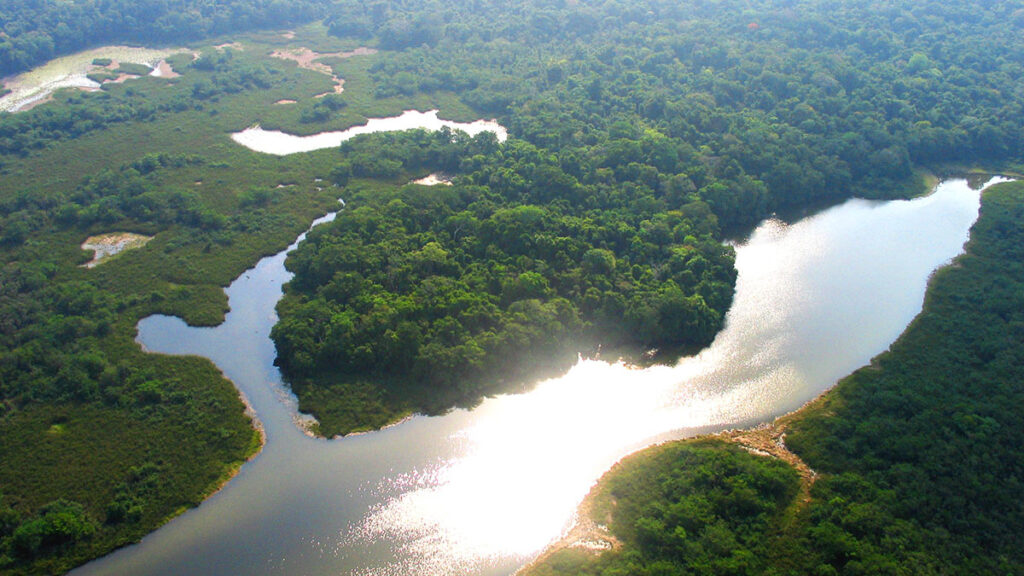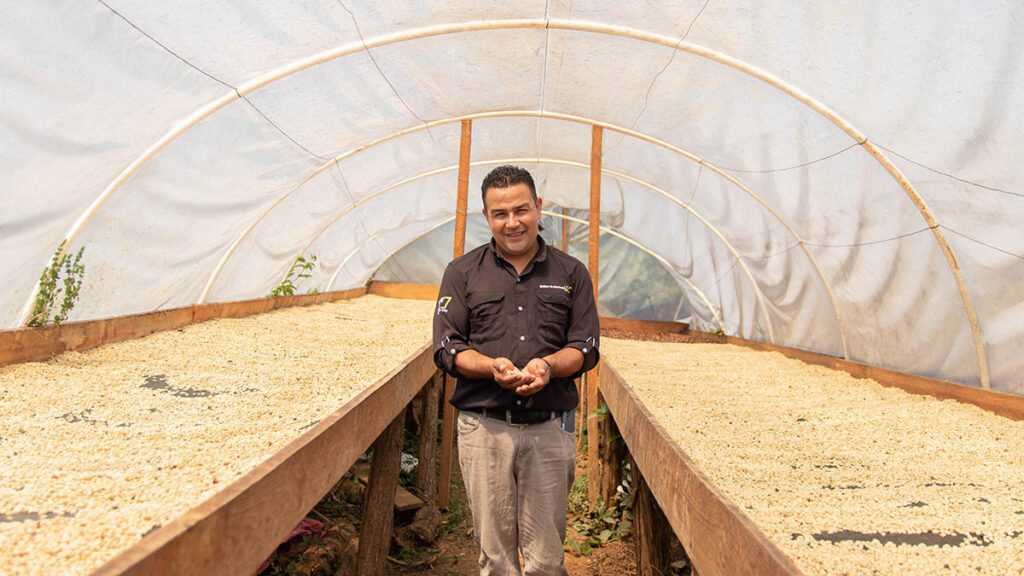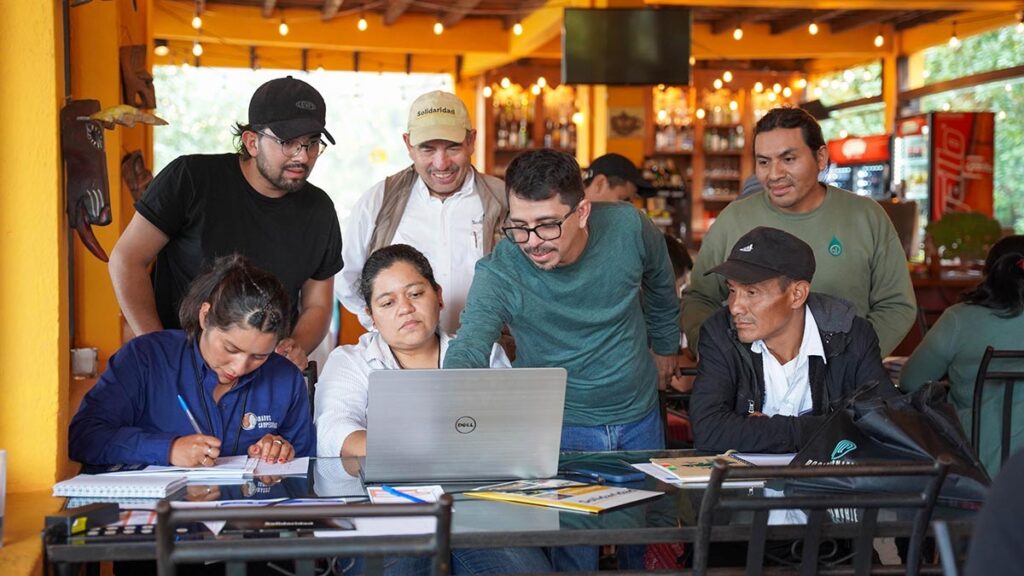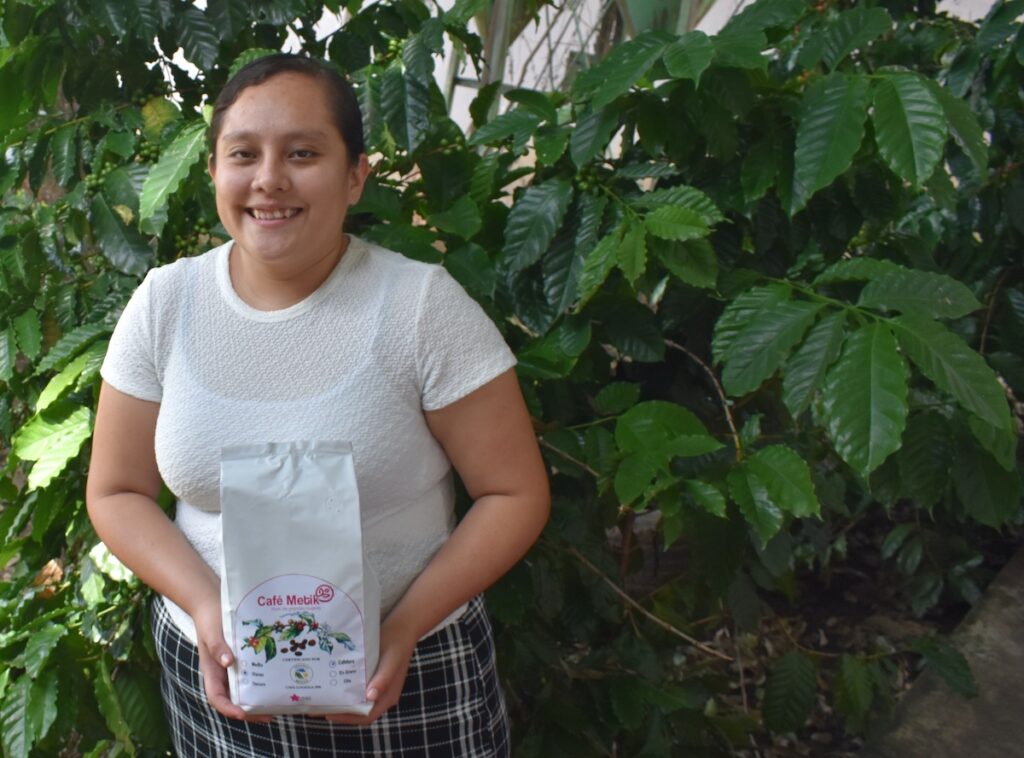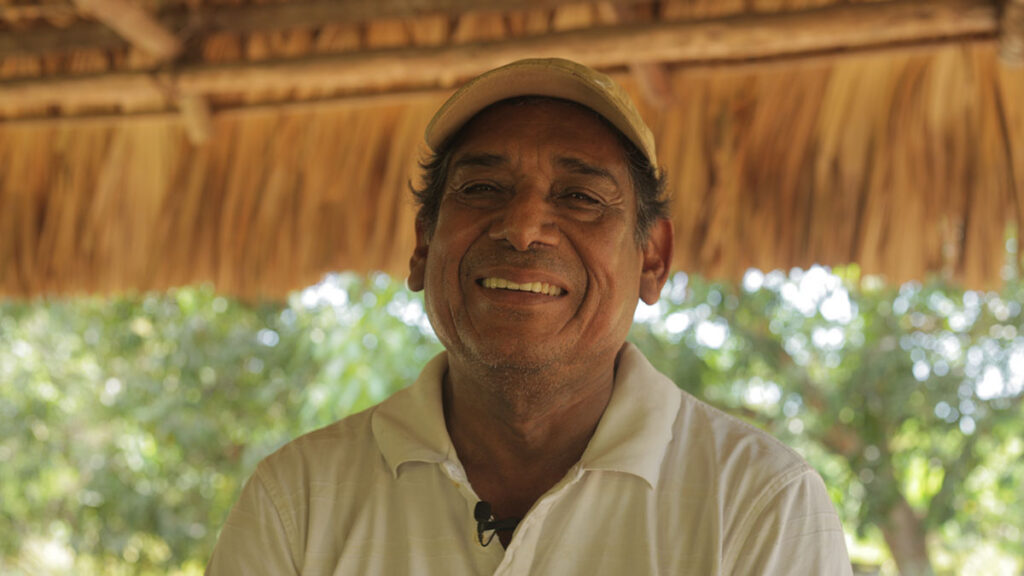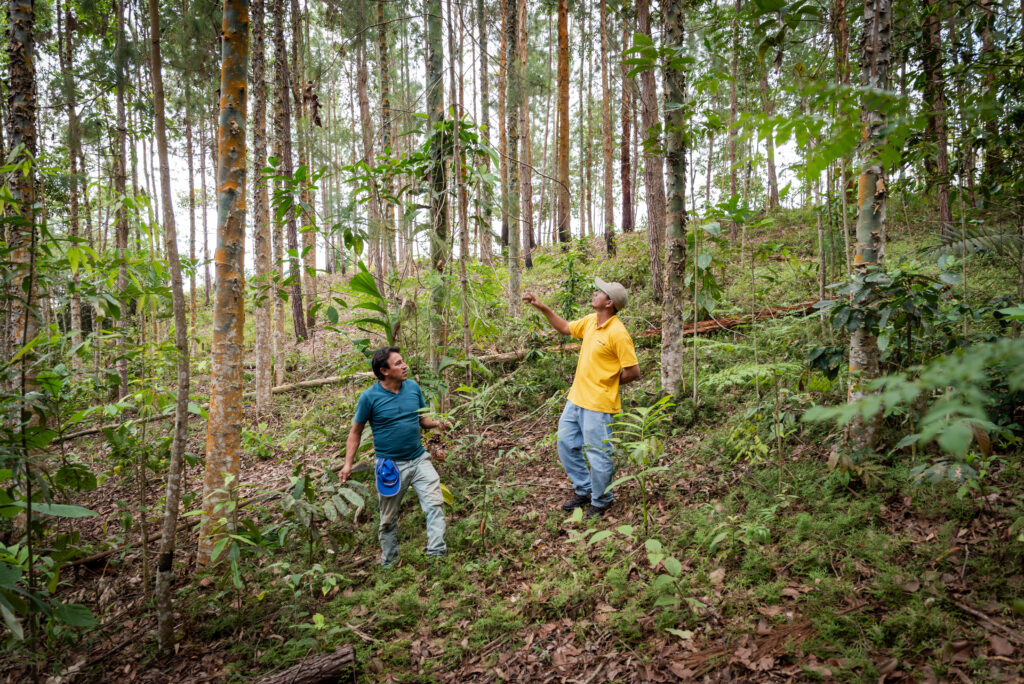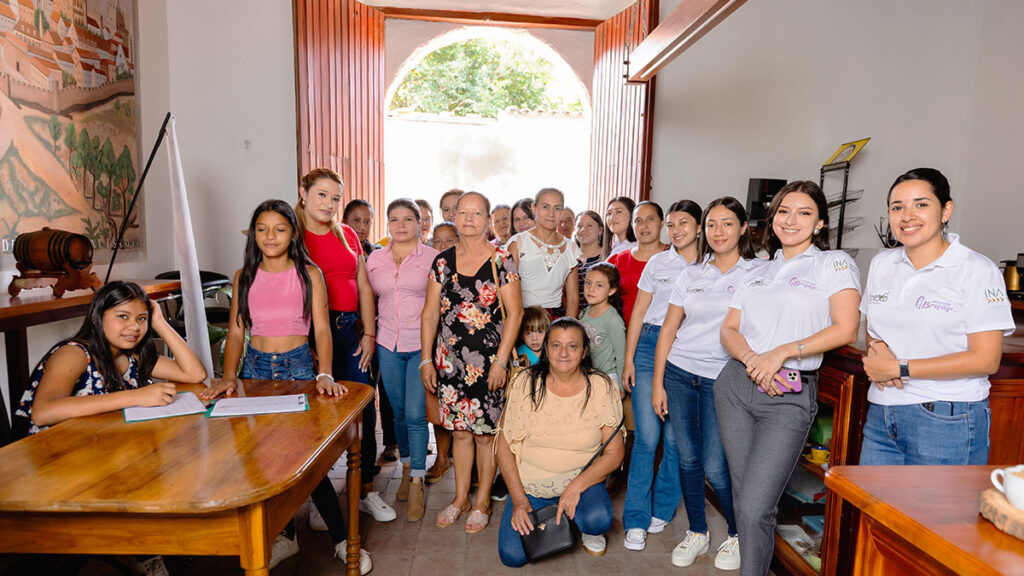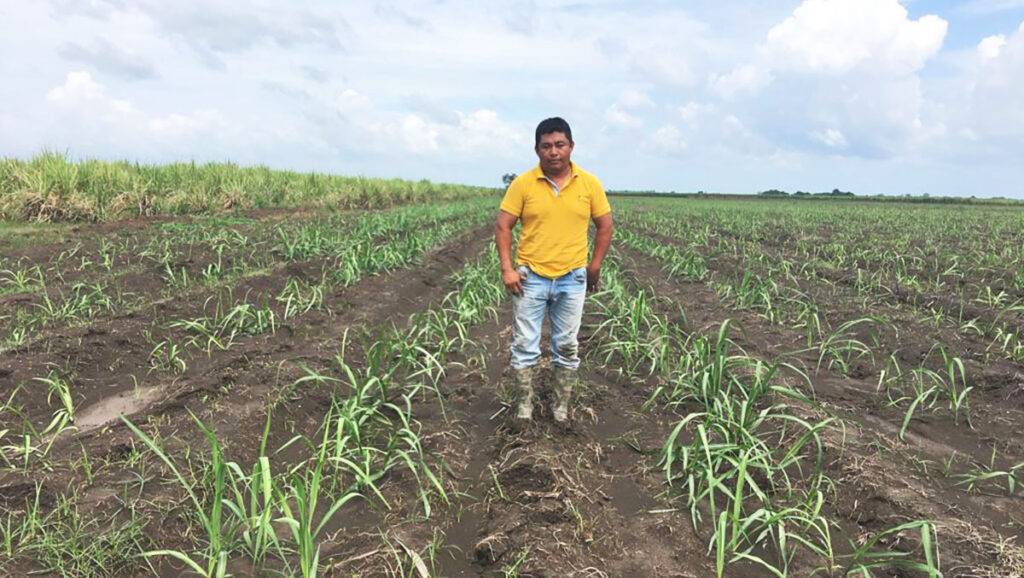Smallholders reap multiple benefits by learning about climate-smart practices required to establish and maintain an agroforestry system. The system helps farmers diversify food and income sources as they incorporate fruit-bearing trees or other crops into cocoa plots. We also link smallholders with strategic partners in Central America, the United States and Europe to strengthen capacities in transforming cocoa into finished products and marketing those products.
Farmer field schools and the promoter initiative
Since 2017, we have supported smallholder farmers from Nicaragua’s South Caribbean Coast Autonomous Region (RACCS) by providing technical assistance, through demonstration plots, farmer exchanges and farmer field schools, among others.
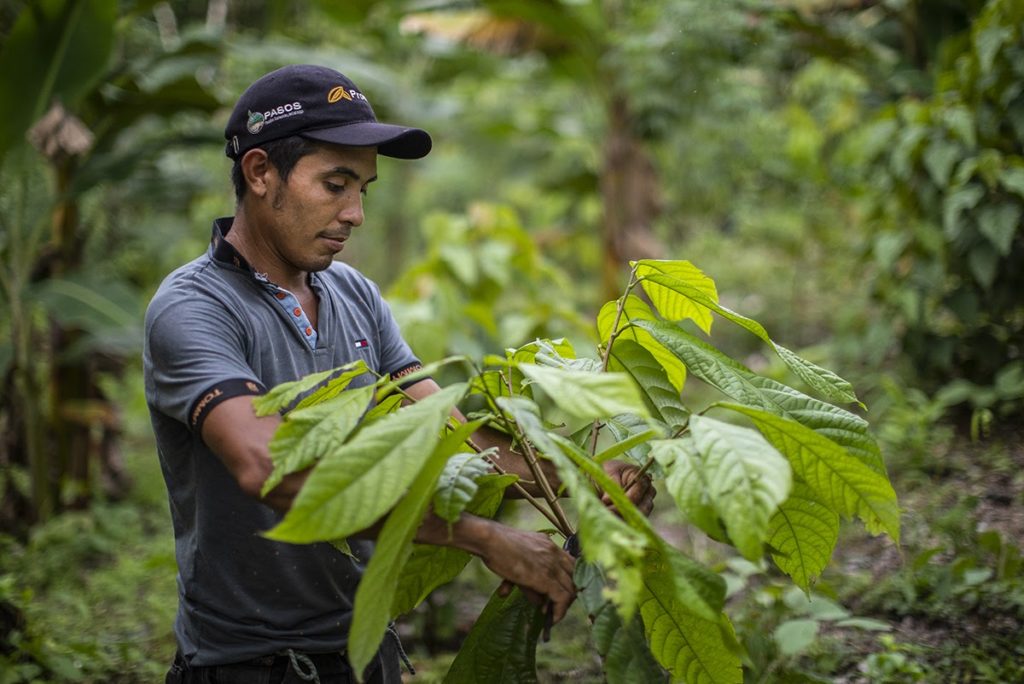
We trained 162 men, 57 women and 163 youth in Nicaragua by creating a network of service providers called promoters. Promoters receive monthly training through farmer field schools and provide technical assistance to their peers within the community. Promoters also learn to use technology to monitor good practices in the field. In partnership with the International Center for Tropical Agriculture and Bluefields Indian & Caribbean University, Solidaridad offered a diploma course in 2019 titled “Cocoa Production in Forest Systems.”
With Solidaridad’s support, Santos Flores established an agroforestry system in his plot of 496 cocoa plants and took on the role of community promoter. He learned all about managing the cocoa crop from the farmer field schools and diploma course starting in 2017.
As a promoter, I can share my knowledge with other producers. I have learned how to graft cocoa plants to improve productivity in the plantation. I often achieve an 80-90 percent productivity increase from [previously unproductive] plants thanks to having developed these skills.
Santos flores, cocoa farmer
Esmeralda Rivas also learned to apply agroforestry and other good practices in her own cocoa plantation. Now, she is also a Solidaridad promoter and trains other cocoa farmers of her community in El Pavón. The family now invests part of their income in continuously improving their plantation with the hope of one day owning more land.
“Before [working with Solidaridad], we grew cocoa [in a 0.85 hectare plot] without much maintenance. The trees were extremely tall (up to 7 meters) and we didn’t remove damaged or infected cocoa pods. We improved our existing plantation as best we could and are now growing new plants in a plot of approximately 6.8 hectares using the new practices we learned. We will continue taking care of these plants and may be able to plant more in the future,” said Esmeralda.
Many youth who don’t see a future in agriculture wish to leave their communities; however, that’s not the case with Esmeralda’s son, Jason Castillo Rivas, who learned about grafting through the farmer field schools and is eager to continue learning. Both Esmeralda and Jason have witnessed the benefits of the agroforestry system and appropriately managing the crop.
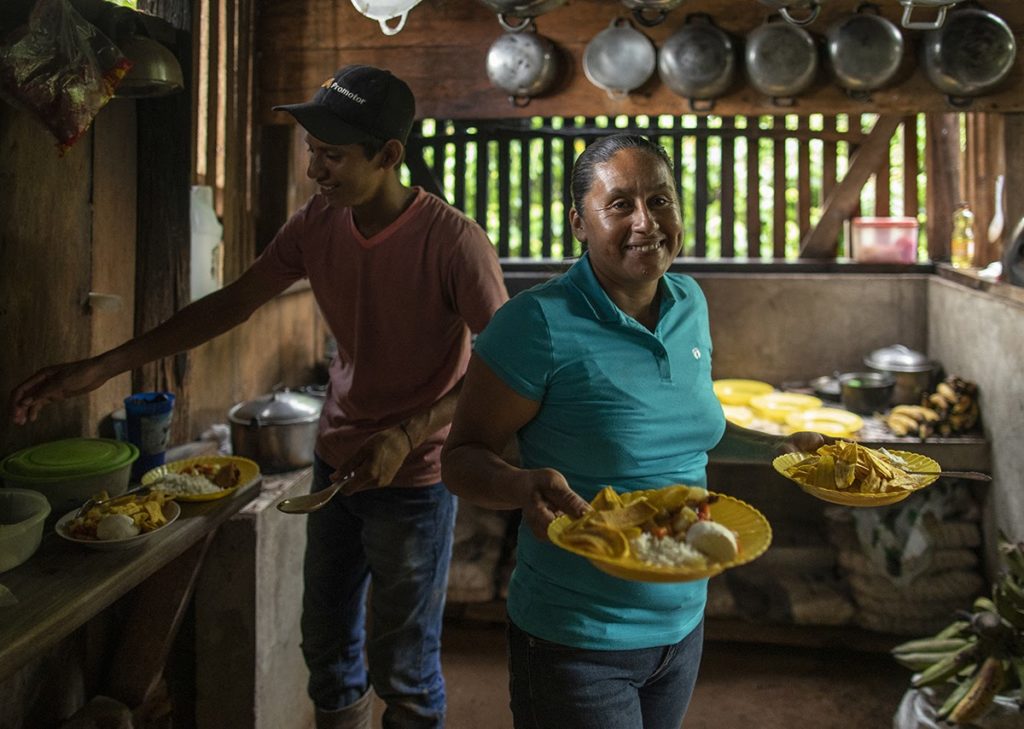
“We grow coffee, corn and bananas, which helps us feed our family, and we sell whatever we don’t consume. We used to view cocoa as a source of secondary income [to livestock]. Now things seem so different: investing in good practices yields gains. I feel enormous satisfaction after practicing constantly to improve my grafting technique. Seedlings alone produce cocoa pods at a rate of 70 percent, while the grafted plantations can yield up to 100 percent in production. My plan is to keep learning about cocoa,” said Jason.
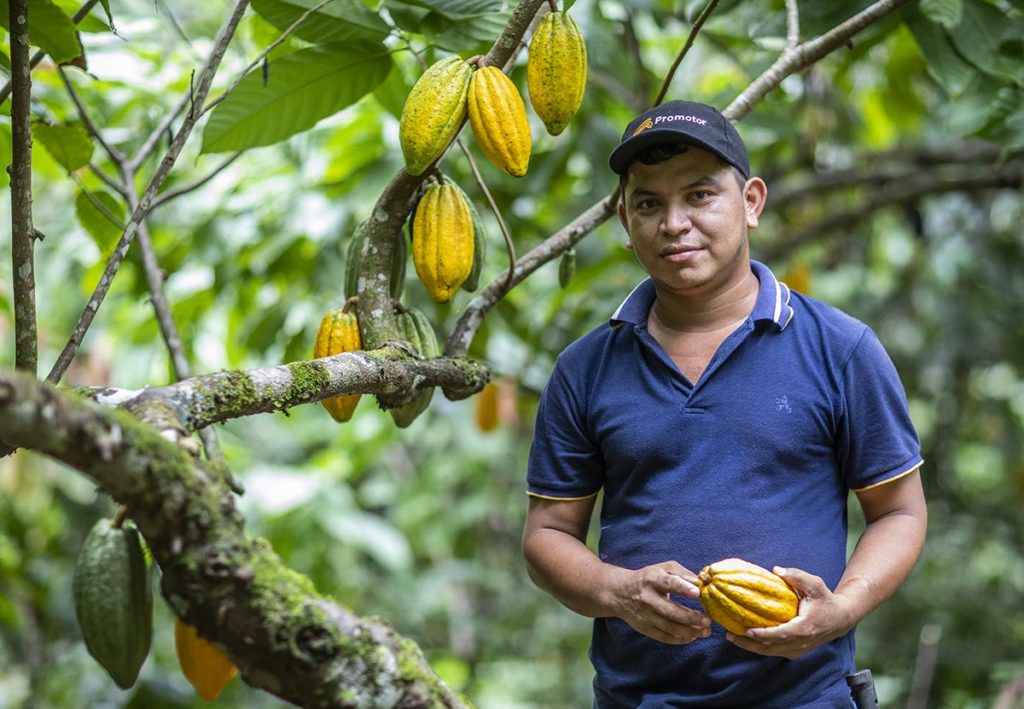
Christian Murillo lives and works in the María Cristina community of El Rama in Nicaragua, on a plantation of approximately 0.5 hectares, established in 2011. In 2017, his plantation was producing only 19 pounds of dry cocoa beans, a fraction of the national average of 900 pounds per hectare. In 2020, three years after beginning to work with Solidaridad on improved practices, Christian’s plantation is producing 725 pounds of dry cocoa beans.
“I feel encouraged because the work is yielding results and the harvest has improved,” said Christian. “In the future I will continue upkeep in the plantation, through the pruning, weeding and disease-prevention techniques I learned, which have been very important for improving my plantation’s yields.”
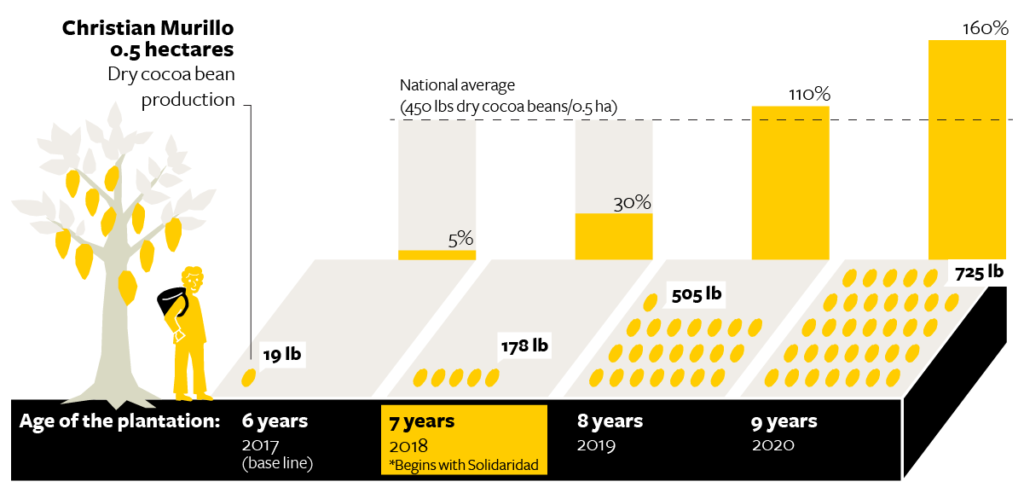
Strengthening entrepreneurial and marketing capabilities
In 2018, Solidaridad became a member of La Red de Innovación e Impacto (La Red), a group of organizations that support micro, small and medium enterprises (MSMEs) to foster growth and prosperity in Latin America and The Caribbean. Funded by the US Department of State, La Red supports this growth through funding but also by linking MSMEs with experts and organizations that can provide technical assistance.
Through networking opportunities, Solidaridad has been able to build capacities for the Cocoa and Chocolate Women Network of Honduras (REDMUCH).
“They taught us all about the legal, commercial, consumer and sanitary aspects [for making and selling chocolate]. We learned how to adapt our mindset to cater to different demographics locally and nationally. My company began with 6 products before working with Solidaridad and now we market a total of 12 products thanks to training. We have seen growth thanks to technical assistance from La Red and Solidaridad,” shared Judith Suazo from Chocolatelo, a REDMUCH member.
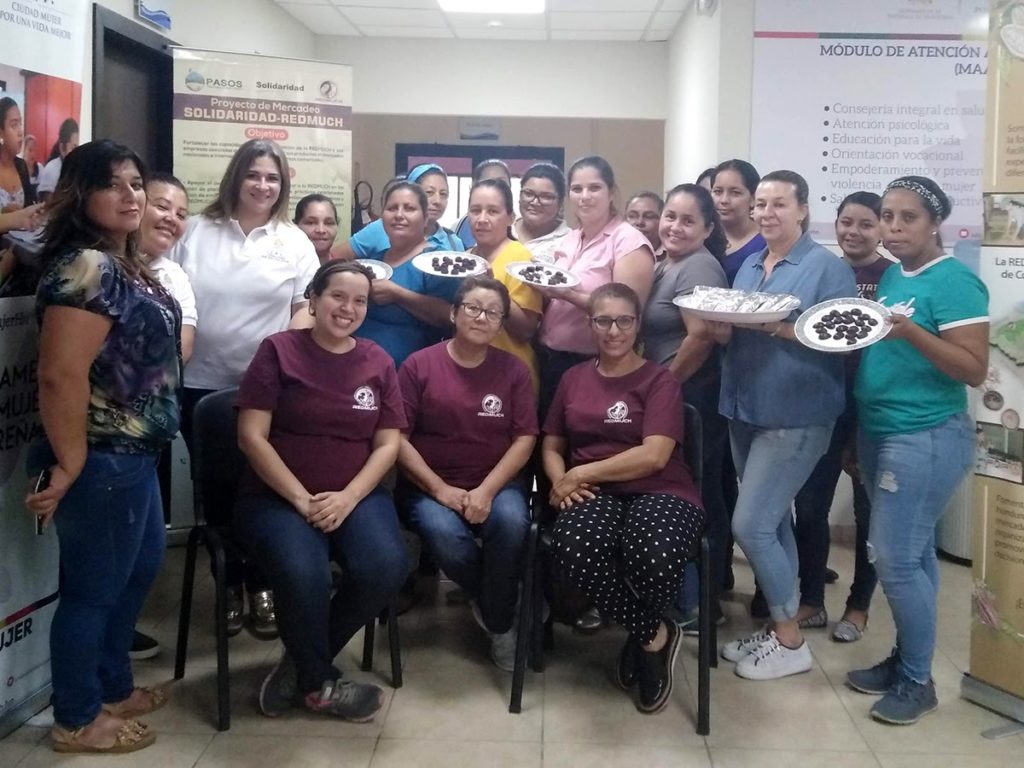
Along with increasing income by 10 percent from chocolate sales, other notable results from building REDMUCH’s entrepreneurial and marketing capabilities include:
- 9 new marketing plans designed and implemented
- obtaining compliance for 40 products [product sanitary registrations, etc] and creating 36 new chocolate products
- expansion into 3 types of markets that REDMUCH companies had not previously permeated.

